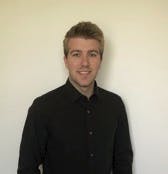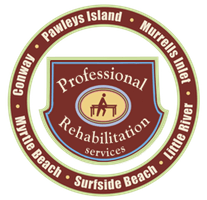Rehabilitation for Your Golf Related Injury
By. Dr. Zach Daniels PT, DPT, Cert. DN

Living in one of the most highly sought-after regions in the country to play golf, it is important that an injury will not keep you from doing what you love. Correcting or preventing golf related injuries is just like maintaining your car; without the correct mechanics, your body will become damaged. While it is a common belief that golf is a relatively "low impact" sport, it is a sport prone to repetitive traumas and injuries similar to that of tennis and running. These chronic conditions include tendonitis of the elbow and shoulder, lower back pain, sacroiliac (SI) joint dysfunction and much more. Many of these injuries are preventable with proper body mechanics and a regular body maintenance plan.
Physical therapists are movement experts and attain countless years of training in this specialty. This allows them to decipher patterns of movement, specific to an individual, that are the cause of pain or a future injury waiting to happen. When assessing a golfer for specific movement patterns, it is important that the body be looked at as a whole. More often than not, the root cause of the pain or discomfort stems from a completely different part of the body. The body works as a well-oiled machine with many gears, and if even one gear in the chain is not functioning properly, something is likely to fail, leading to injury. These "gears" include the bones, joints, muscles, nerves, ligaments and tendons of the body. From the alignment of your feet through the follow through of the swing, everything must work as one.
Lower back pain is a leading cause of debilitating golf related injuries that can occur from a young age and can become even more prominent with age. There is a significant rotational stress that is placed on the vertebrae in the back swing and follow through swing, which jeopardize the integrity of the joints, muscles, nerves and ligaments that are located in close proximity. Stiff joints, just like rusty bolts, when under highly stressed and repetitive circumstances will likely fail, affecting other surrounding structures. Stiff joints in the lower back are a normal occurrence with aging due to arthritis and decreased flexibility. With proper management, symptoms can greatly improve. Through a formal assessment performed by a physical therapist, in combination with joint mobilizations, manual therapy, dry needling and a strengthening/flexibility program, the risk of developing a chronic injury that may take you off the golf course can be prevented.
The second major incidence that happens to both leisure and competitive golfers is shoulder and elbow pain, likely stemming from a nerve entrapment or tendonitis pathology. Due to the repetitive nature of the upper body and arms with a golf swing, a nerve can become essentially "pinched" in places from the neck to the hand. Similarly, tendons, which attach directly to muscles, can become inflamed and in some circumstance begin to tear. Common injuries include rotator cuff tear/ dysfunction, carpal tunnel syndrome and golfers' elbow (outer elbow pain). Major contributing factors to these injuries include poor shoulder/ scapular muscle stabilization strength, decreased flexibility, tight grip and over rotation from the shoulders. Again, through a proper assessment from a physical therapist and a combination of manual therapy, ultrasound, dry needling, strengthening and flexibility, returning to the golf course without pain is possible.

Get back to doing what you love and don't let an injury keep you from getting the full potential out of your golf swing. At Professional Rehabilitation Services, we treat a wide variety of musculoskeletal and neurological conditions using the latest in evidence-based therapies provided by highly credentialed physical therapists. Professional Rehabilitation Services has eight convenient locations in Pawleys Island, Murrells Inlet, Surfside Beach, Market Common, Myrtle Beach, Carolina Forest, Conway, and Little River.
For further information on this or other related topics you can contact, Zachary Daniels, PT, DPT, Cert. DN (Market Commons) (843) 213-6338, Richard DeFalco, DPT, OCS, CSCS, CWcHP (Myrtle Beach) (843) 839-1300, Brian P. Kinmartin PT, DPT, MTC, STC, OCS, CWcHP (Pawleys Island) (843) 235-0200, Richard A. Owens, MPT, OCS, Cert. SMT, CWcHP (Surfside) (843) 831-0163, Jill P. Phelan, PT, DPT, Cert. DN (Conway) (843) 773-3031, Lisa O'Brien, PT, DPT, Cert. DN (Murrells Inlet) (843) 314-3224, Karl Ehlers, PT, DPT, Cert. DN (Little River) (843) 281- 4222, Samantha Crisafulli, PT, DPT, Cert. DN (Carolina Forest) (843) 282-0440 or visit our website at www.prsrehabservices.com where you can learn more about the company and even download a referral form for your physician to fill out. You can also call and schedule a free 15-minute consultation!
